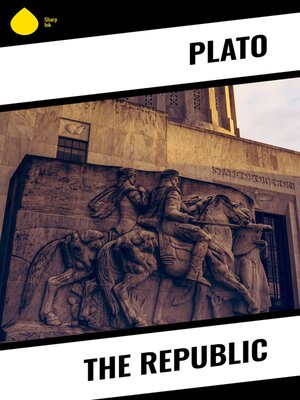
Sign up to save your library
With an OverDrive account, you can save your favorite libraries for at-a-glance information about availability. Find out more about OverDrive accounts.
Find this title in Libby, the library reading app by OverDrive.



Search for a digital library with this title
Title found at these libraries:
| Library Name | Distance |
|---|---|
| Loading... |
In "The Republic," Plato explores the foundations of justice, the nature of the ideal state, and the philosopher-king's role in governance. Written in the form of a Socratic dialogue, this seminal work incorporates allegory, dialectic reasoning, and vivid metaphors, such as the Allegory of the Cave, to delve deeply into philosophical inquiries about reality, morality, and human existence. Set against the backdrop of Athenian socio-political turmoil during the late 5th century BCE, Plato's text serves as both a critique of contemporary society and a blueprint for an enlightened community, illuminating the interplay between ethics and politics. Plato (c. 427-347 BCE), a student of Socrates and teacher of Aristotle, was profoundly influenced by the Socratic method, which permeates "The Republic". His experiences during the Peloponnesian War and the philosophical departure from Athenian democracy shaped his vision of an ideal state governed by wisdom rather than mere popular opinion. The dialogue reflects his deep concern for moral and intellectual integrity in leadership, as well as a search for truth beyond the shadows cast by unexamined beliefs. "The Republic" is essential reading for anyone seeking to understand the philosophical underpinnings of Western thought regarding ethics, governance, and the pursuit of the good life. It invites readers to engage with timeless questions about justice and the human condition, encouraging reflection on the nature of their own society and its values. Plato's exalted vision of a rationally ordered community continues to resonate, making this work indispensable for scholars and thinkers alike.







